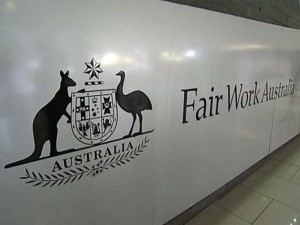
The Fair Work Commission has increased the National Minimum Wage by 5.2 per cent following its Annual Wage Review 2021-22, taking the hourly rate from $20.33 to $21.38.
Minimum award wages have also been given a boost, with wages above $869.60 per week receiving a 4.6 per cent increase per week and wages below $869.60 receiving a $40 increase.
Prime Minister Anthony Albanese has applauded the decision which will impact 2.7 million Australians.
“It makes a difference to people who are struggling with the cost of living, and it justifies our position that we took in making a different submission to the Fair Work Commission, that said we did not want people who are on the minimum wage to go backwards,” said Prime Minister Albanese.
Kim Puxty, national president of the Building Service Contractors Association of Australia (BSCAA), said the wage rise will be seen as a welcomed outcome for cleaners.
“A majority of BSCAA members employ cleaners, so today’s increase will bring with it an increase in the cost of cleaning. However, even though any cost increase is never welcomed news, in this case, BSCAA understands that many cleaners across Australia have felt undervalued in recent times,” Puxty said.
“The increase in award wages that will flow from today’s decision should go a long way toward correcting that perception of undervaluing.”
Andrew McKellar, CEO of the Australian Chamber of Commerce and Industry (ACCI), said the wage increase will hit those industries which have been hurt the most by COVID-19 restrictions and will cost Australian businesses $7.9 billion a year.
“While some businesses have rebounded strongly in recent months, the reality is we are experiencing a multi-speed economy,” McKellar said.
“Many award reliant business were severely disrupted by the COVID-19 pandemic and are only just beginning to recover. Imposing unaffordable wage increases on these small businesses will put jobs at risk, not create them.”
McKellar said that throughout the annual wage review, ACCI urged the panel to consider the ability of businesses to afford any substantial increase in wages.
“Having only just begun to recover from the pandemic, small businesses are now facing surging energy prices, continued supply chain disruptions, the second worst workforce shortages in the OECD, and the prospect that inflation could reach 7 per cent.
“This annual wage decision imposes an unnecessarily complex outcome on businesses who are already facing a difficult and disparate set of economic circumstances. It’s not what we need in a modern, flexible and international competitive economy where increased focus on higher productivity is needed.”
The Fair Work Ombudsman is in the process of updating pay tools, information and resources with the new rates and has encouraged people to use find my award to keep up to date with relevant changes.
Comment below to have your say on this story.
If you have a news story or tip-off, get in touch at info@incleanmag.com.au
Sign up to INCLEAN’s newsletter.



